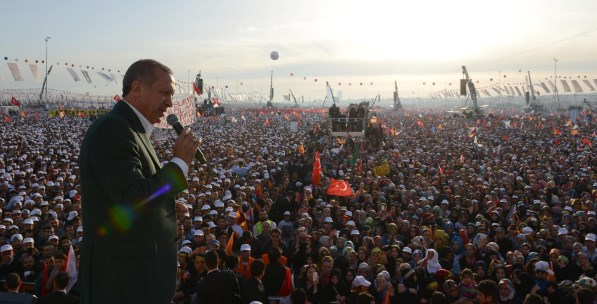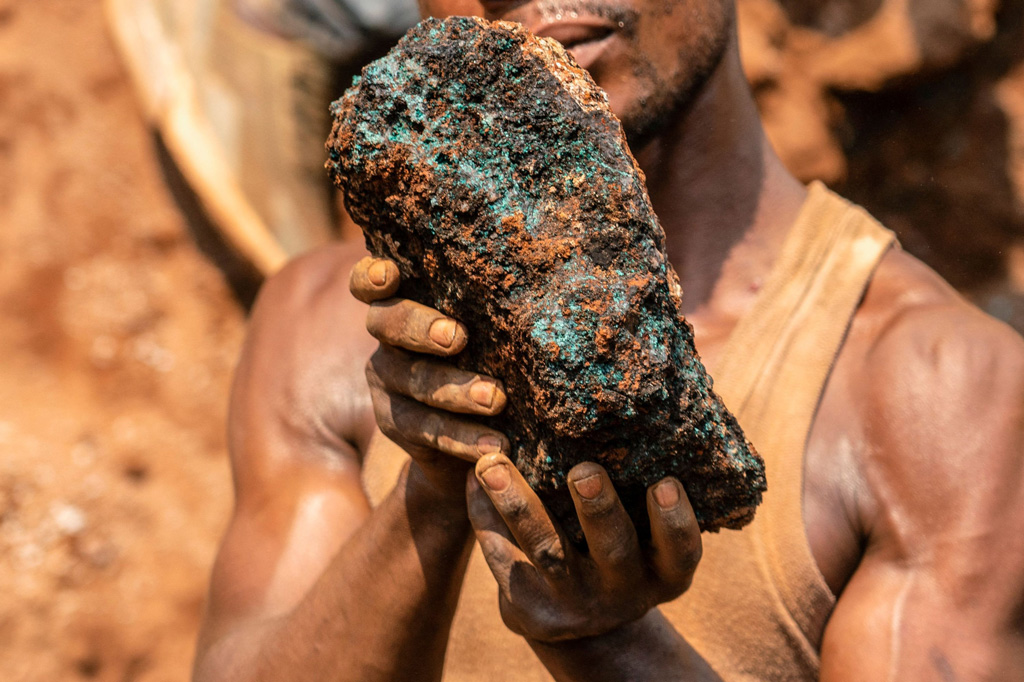In the elections, the Justice and Development Party (AK Party) won in 60 percent of all metropolises, 59 percent of all cities, and 61 percent of all villages. The main opposition Republican People’s Party (CHP) won in 20 percent of all metropolises, 15 percent of all cities, and 17 percent of all villages. The Nationalist Movement Party (MHP) won in 10 percent of metropolises, 9 percent of cities, and 11 percent of villages. The Peace and Democracy Party (BDP) won in 7 percent of metropolises, 15 percent of cities, and 7 percent of villages. There has to be a reason behind the AK Party’s 60 percent success rate, beyond the platitudes offered in the media. The March 30 elections marked not only a success for the AK Party, but also an unprecedented rate of participation in the elections. This is not simply the result of a successful election campaign. It is the result of a maturing AK Party identity in Turkey.
The AK Party has become the primary party in all seven regions in Turkey. It was able to go toe to toe with the CHP in the Aegean region - due to alliances between the CHP and MHP. In all other regions, there was at least a 10 percent difference between the AK Party and its closest competitor. This difference was 31 percent in the Black Sea, 25 percent in Central Anatolia, 12 percent in Southeast Anatolia, 11 percent in Eastern Anatolia, and 10 percent in the Mediterranean. The AK Party’s share, compared to the 2009 results, increased in 74 cities, while it decreased only in seven.
What this landscape tells us is that the AK Party is the only party that cuts across all political lines in Turkey. Turkey’s “unity” is ensured by the AK Party’s constituents. This is why there have been dramatic increases in AK Party votes at times when it seemed like the country was on the cusp of a crisis. It is only natural that the AK Party, which is able to reach all identities and regions of the country, is the one that fills the lack of stability and security that still haunts the social imagination.
Let’s set aside the absurd 55 percent (the total gained by all other parties) analysis and the peculiar practice of comparing local and general election results for now. What needs to be made clear is that if the AK Party, which has emerged victorious from all the elections it has entered, wins its fourth general elections, it will write history as the country’s dominant party. That is to say, the AK Party now shoulders the responsibility for assuaging all of Turkey’s democratization pains. At this point, as can be evinced from the results of the elections, a few desperate opposition actors are not strong enough to shoulder this burden. This is not really surprising. The problem is that the pressures of this landscape have been reflected in the democratization process. While this situation delays democratization, it gradually strengthens the fault lines that unite the AK Party but divide the opposition.
As the results of the March 30 elections reveal, the AK Party is the only party in Turkey’s political history that appeals to all social segments. This, ironically, causes the opposition parties to assume less responsibility for those segments that might have felt marginalized by a less inclusive party. The AK Party continues to do politics without a functioning opposition, as it has become accustomed to.
Nevertheless, this situation has to come to an end, because democratization can only be achieved by changing the Constitution. The opposition can become a national party by supporting the government for this change.
[Hürriyet Daily News, April 11, 2014]






